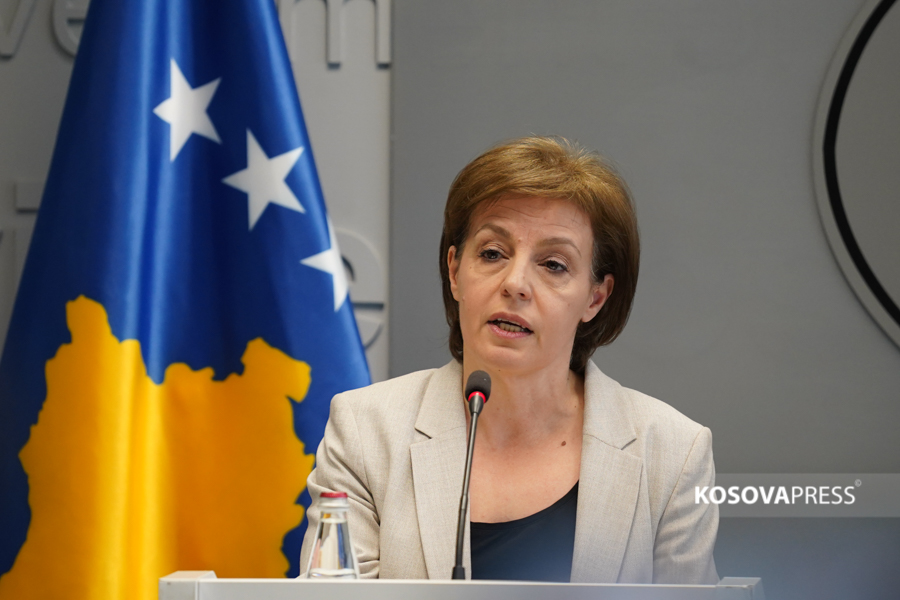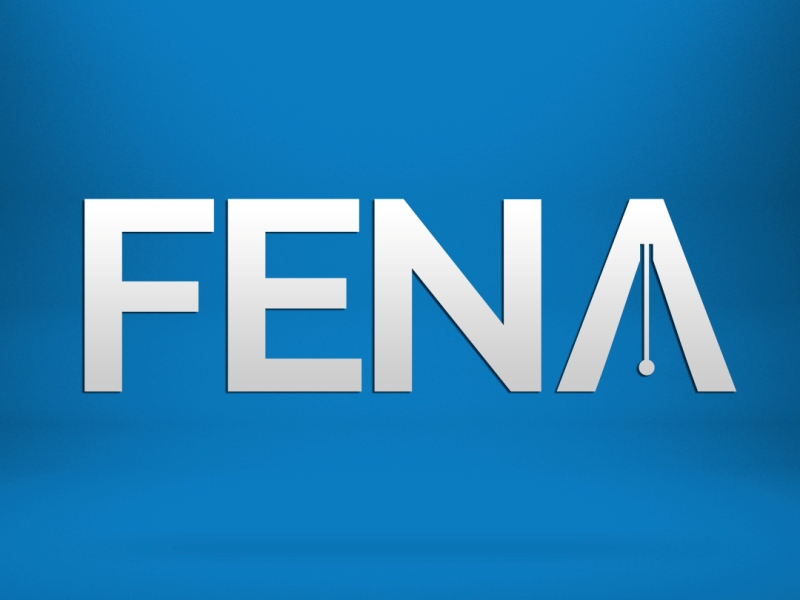PRISTINA, February 19 (FENA) - The Minister of Foreign Affairs of Kosovo, Donika Gervalla-Schwarz, believes that full international recognition of Kosovo's independence would be a signal to nationalists in Serbia that destabilizing neighbors such as Bosnia and Herzegovina, Montenegro and North Macedonia is no recipe for success.
"The recognition of Kosovo will be a tremendous, even historic contribution to stability and peace," said Gervalla-Schwarz, Minister of Foreign Affairs of Kosovo, in an interview with FENA.
She stated that Kosovo is different from Bosnia, and they have the same powers trying to get them into trouble, but Kosovo is not divided regarding the power structure.
"More than 94 percent of our citizens belong to one ethnicity, and our Constitution is the most minority-friendly in Europe. We even have for minorities a guarantee for members of the government," she said.
The government of Kosovo is pretty much in control and can provide security and the rule of law, also in the northern part, even against violent criminal structures that try to intimidate Serbian, Albanian, Bosniak, and other citizens of Kosovo who are living in that part of our country.
"This is the real question, not only for Kosovo but also for Bosnia, Montenegro, and North Macedonia, and in that regard for the West: How much are we ready for, and for how much longer, to tolerate an ever more aggressive Russia and its ever more aggressive proxies in the Balkans, ranging from Vučić and Dačić to Dodik," stated Gervalla-Schwarz.
The West has to give an answer, and it should not fail again as it did so dramatically in the 1990s here in the region, and after 1999 with regard to Putin's aggression in Georgia in 2008, and Ukraine in 2014, which finally led to the all-out war against democratic and peaceful Ukraine in 2022.
"If we as the West fail again, Europe might end up in a Great War again. Either we stop those who wage war and those who threaten with war, like Putin and Vučić and Dačić, Vulin and other extremists, or it might be pretty quickly too late," warns the Minister of Foreign Affairs of Kosovo.
She said that the situation in Kosovo is as stable as possible since our government and our people remain calm and do not react in the same manner as these hateful nationalists are trying to provoke conflict in our countries.
Speaking about the normalization of relations with Serbia and Kosovo, Gervalla-Schwarz emphasized that they are ready to accept the Franco-German proposal, as a basis for further talks, but "we are not allowing another Republika Srpska, one might be too much already".
The 'Association of Serb Municipalities' contradicts the Article 23 of the Kosovo Constitution.
"We instead focus on a final agreement which must result, as President Biden and Chancellor Scholz told Mr. Vucčić, in mutual recognition," she said.
When asked what is the current international position of Kosovo, especially from the aspect of the continuation of Serbia's campaign for the withdrawal of recognition of Kosovo as a state, and entry into the United Nations, she said that everyone knows that kind of propaganda from Belgrade, and as far as the UN is concerned, we know that the membership for Kosovo is not only depending on Serbia.
There are others, among the permanent members of the UN Security Council, who do not want to set a precedent. This shows that promises of UN membership are simply not serious; they are naive at best. The West should stop selling illusions and should develop a realistic strategy. But not with bets on Vučić and Putin, but with a quick adaptation to the new era," stressed Gervalla-Schwarz.
The West, of which Kosovo surely is a part, needs to decouple its policy from Serbia and Russia.
"We have to move first instead of lagging behind. So, first, we need to go for recognition by the remaining EU and NATO members and send a signal to Russia: "Nothing to grab here anymore, that is done". As soon as Greece or Spain or one of the other remaining five out of 27 EU members recognize Kosovo, that will break the deadlock and make Serbia recalculate its position," the Foreign Minister of Kosovo stated.

By recognizing the reality of the independence of Kosovo, a signal would be sent to nationalists in Serbia that destabilizing neighbors like Bosnia-Herzegovina, Montenegro, and North Macedonia is no recipe for success.
"Our new government sticks to its words, it fulfills our obligations. We do not cheat. Because we insist on the rule of law, the old game of cheating by Serbia has come to an end. Not only Kosovo but everyone in the region knows Vučić, the former propaganda minister of Milošević quite well. He doesn't have a problem with cheating, and he does it systematically, maybe pathologically. Vučić, Milošević, and Dačić follow the ideology of Serb supremacy, which is a racist concept. If Serbia wants to enter the 21st century, it has to end that racism. If Serbia were to become truly European, in its best sense, like most Bosnians are Europeans and like we are real Europeans, tensions and problems in the Balkans would quickly vanish," emphasized Gervalla-Schwarz in an interview with FENA.
Serbia is the 'elephant in the room', and we all need to talk about it, she added. The root cause of Serbia's problems with Montenegro, Bosnia-Herzegovina, North Macedonia, and Kosovo is the racist ideology of Serb supremacy.
Even though Kosovo made a significant step forward for admission to the Council of Europe, the Minister reminded that they handed in their application in May last year and have made tremendous progress quickly. Now they are hoping that the next steps will be taken and stated that they have great support from many countries.
When asked whether the Berlin Agreement can be expected to start applying this year, whose ratification is particularly important for Bosnia and Herzegovina and Kosovo, Minister Gervalla-Schwarz emphasized that the Government of Kosovo has already decided on ratification when it comes to Bosnia and Herzegovina.
"We will open a new chapter for our citizens who will have more freedom to move and more opportunities for economic cooperation, cultural exchange, and fostering the ties between our countries," stated the Foreign Minister of Kosovo.
She said that there is plenty of opportunity since Kosovo has a strong growth of more than ten percent in 2021 and above average again in 2022.
"Besides the economy, we hope that many of our young people will travel and explore their neighborhood. Surely, our governments could identify a series of areas for cooperation. As someone who is advocating Bosnia’s cause wherever I can, I would be ready to invest some effort into this promising endeavor," Minister of Foreign Affairs of Kosovo, Donika Gervalla-Schwarz, said in an interview with FENA.
(FENA) A. B.







